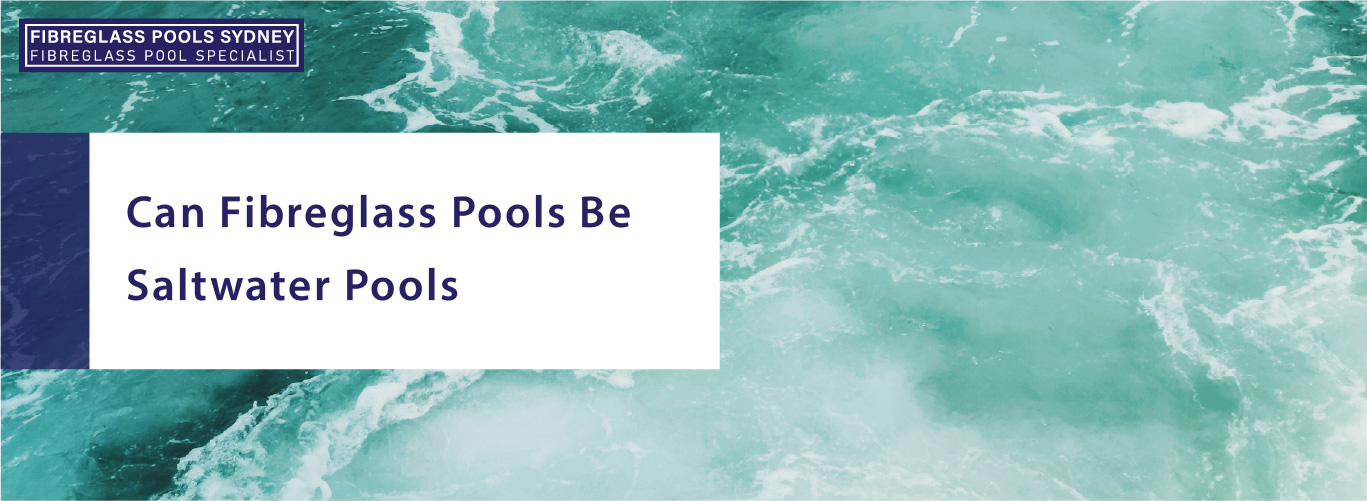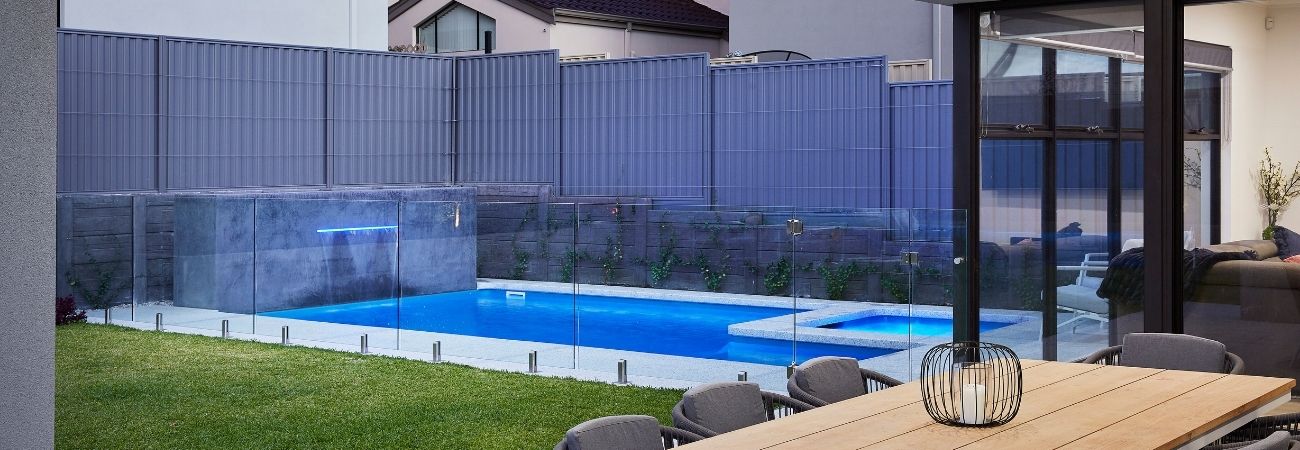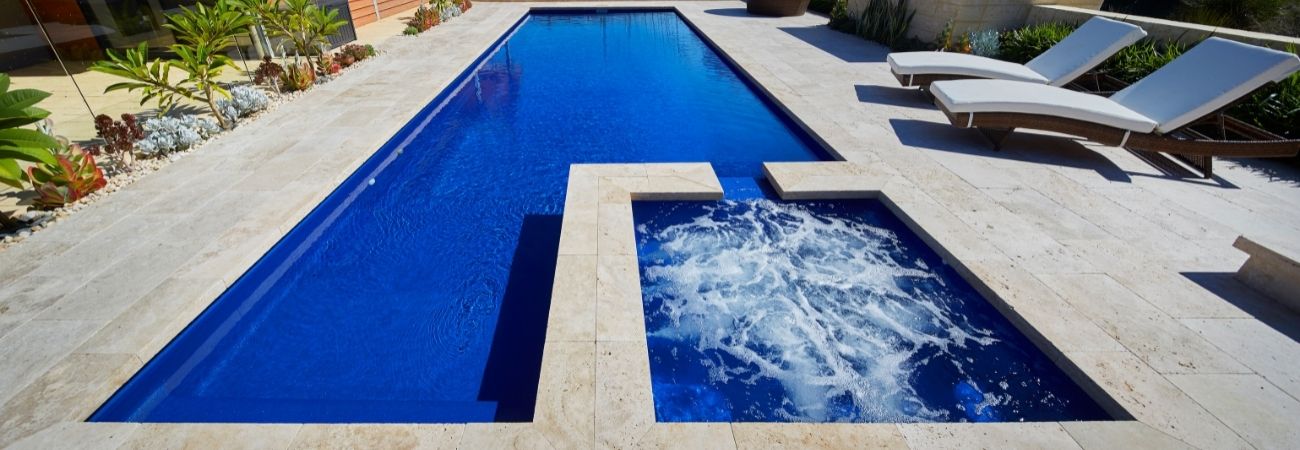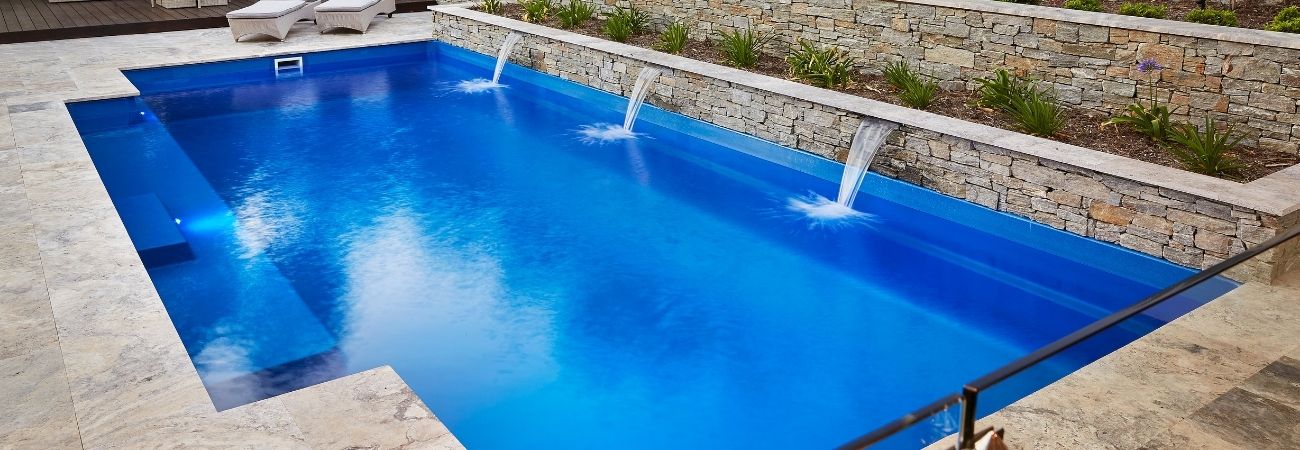Can Fibreglass Pools Be Saltwater Pools
Choosing a backyard pool can be an exciting time for any homeowner. There are several considerations that need to be made when choosing the pool to make the choice a success. An important point that is often asked by many first-time pool buyers is that whether their fibreglass pools be saltwater pools or not. The answer to this question is a strong yes. Saltwater is a very popular choice for pools as it helps in avoiding the strong smell and the stinging eyes associated with chlorine pools. Let us further understand more about saltwater fibreglass pools.

What are saltwater pools?
Many people think that a saltwater pool has salty water like the ‘sea’. However, this is very wrong. The water from saltwater pool is almost as salty as just a teardrop. A saltwater pool makes use of salt to keep the pool clean. In these pools, salt is first added to the pool water. A salt chlorine generator is then installed in the pool that converts the salt into chlorine. It is this converted chlorine that kills the algae and bacteria and keeps the pool water clean. Thus, saltwater helps in keeping the pool water crystal clear without the side effects associated with adding concentrated chlorine to the pool water in the form of tablets, powders, and liquids.
Saltwater in Concrete pools
Getting a salt water system installed in a concrete pool is not actually advisable. This is because the dissolved salt in the water is highly corrosive that can wear down the cement finish and compromise the pool quality. Thus, you are more than likely to get your pools resurfaced than normally needed. This makes the whole saltwater choice a highly expensive one.

Saltwater in Vinyl Liner Pools
Though vinyl liner pools are a better choice than a regular concrete pool, they are not suitable for saltwater too. These pools have steel walls as enforcement. If any compromise or punctures happen to the liner, these walls stand a risk of getting damaged from galvanic corrosion. The saltwater can easily corrode the metal parts and endanger the structure of the entire pool.
Saltwater in fibreglass pools
The good news is this whole scenario is that fibreglass pools are highly compatible with saltwater. Salt has no adverse effect on the pool making them a popular choice for most pool owners. The lining of fibreglass pools is smooth and almost nonporous. Unlike concrete pools, they do not attract algae or bacteria. This means there is less expenditure on their cleaning and maintenance. Many families prefer the saltwater system for their fibreglass pools because it does not give the water that awful chlorine taste and eye-burning while still keeping the water clean. In fact, there is a silky feeling that you will get when getting into the pool.
However, there is one thing that needs to be kept in mind when choosing saltwater for your pools. The surroundings of the pool such as equipment, deck, or concrete need to be maintained on a regular basis. This is because they will be getting wet from time to time with saltwater through splashing or people getting in or out of the pool. This may create a high concentration of salt on these objects eventually leading to corrosion of metal or aluminum things and fittings. In order to avoid this from happening, it is best to wash the surrounding area and objects down with a hose after each usage.
Cost of getting a Saltwater pool
One of the most important considerations when choosing any sanitizing agent for your pool is the cost involved. However, there is not much difference in the costs involved in salt and chlorine generators. Though saltwater generators are on a more expensive side than a regular chlorine generator, salt itself is quite cheap, unlike the traditional chlorine. The lifespan of a saltwater generator is also shorter than a chlorine generator as salt places excessive wear and tear on the equipment.

Advantages of saltwater systems
There are several advantages of getting a salt water system installed in your backyard pool. Let us take a look at why it is considered to be one of the best sanitizing systems for your pool.
- There are no caustic effects on the body, hair, or skin due to salt, unlike chlorine. The salt present in the pool is of the same level as that of the salt found in the human body. This makes saltwater pools easy to handle and store. Processed chlorine can change the hair color and even make them brittle. Many swimmers suffer from allergic reactions after swimming in a chlorinated pool.
- The saltwater is softer and silkier in feel. Thus, you can indulge yourself in much more pleasant swimming and bathing experience.
- There is less maintenance needed than a chlorinated pool. This is because a saltwater generator starts making chlorine when it is switched on. This helps in maintaining a consistent chlorine level in the pool without overdosing t with harsh chemicals and making them unsafe for swimming.
- Saltwater pool generators are more economical than chlorine in terms of running and maintenance.
- Salt water pool water does not cause any burning or stinging in the eyes or throat even if it is accidentally swallowed in the water. This makes them safe water to swim in. This is a huge advantage if you have young children at home using the pool on a regular basis.
Disadvantages of saltwater systems
Just like any other thing, saltwater pools to have their own pros and cons. Listed below are some of the disadvantages of saltwater systems that need to be kept in mind when choosing the same for your house.
- Though there is no damage to the interior of a fibreglass pool, it can cause significant corrosion to the surrounding area of the pool.
- If the saltwater chlorinator generator system is not maintained on a regular basis, salt can damage and erode the equipment.
- Extra effort is required to maintain the balance in a saltwater pool. Water chemistry should be checked on a regular basis as mineral deposits can get built up over time in a salt cell inhibiting the system from its full potential.
- The pool pump in a saltwater pool needs to run for a minimum of over 8 hours a day depending upon the usage. This time may get increased in larger pools.

Conclusion
Do remember, The saltwater pool may require more upfront money than a chlorine pool. However, chlorine pools require more maintenance and the chlorine that needs to be added to water is more expensive to buy than salt. Saltwater pools have made their debut only recently in 1980s but in the short time that they have been in the market, they are becoming quite popular. More and more people are choosing to convert their chlorine pool into a saltwater fibreglass pool as the water is less harsh and softer on the skin. Thus, the initial costs are more than compensated for in the long run. Consult with a professional to know more about getting a saltwater pool for your backyard for an efficient swimming solution for your house.


